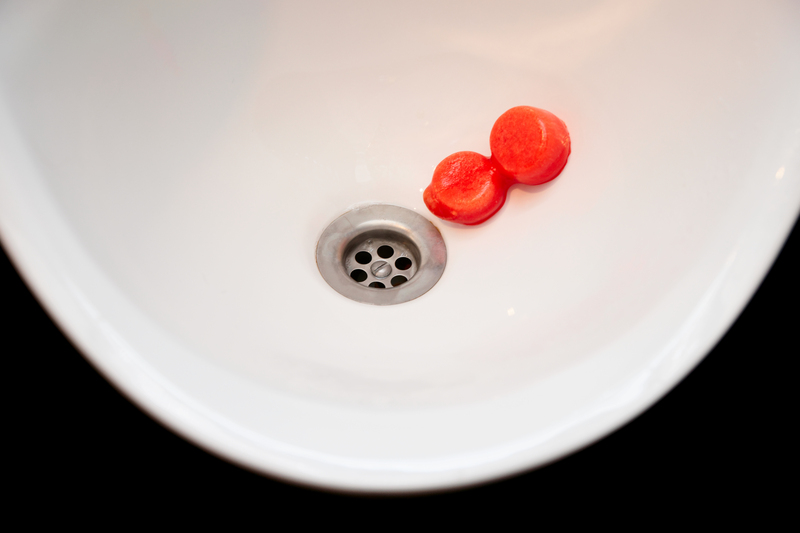Say Goodbye to Musty Smells with These Easy Solutions
Posted on 12/06/2025
Say Goodbye to Musty Smells with These Easy Solutions
Have you ever walked into a room and been hit with that unpleasant, lingering musty odor? You're not alone! Musty smells are common in homes, offices, garages, basements, and even cars. Not only are these odors off-putting, but they can also indicate underlying issues like mold growth or poor ventilation. If you're tired of masking these scents with scented candles and air fresheners, it's time to get to the root of the problem. In this comprehensive guide, discover effective ways to eliminate musty odors and keep your living spaces smelling fresh for good!
What Causes Musty Odors?
Before tackling the problem, it's crucial to understand where musty smells originate. Typically, a musty or mildew scent comes from:
- Mold or Mildew Growth: Fungus thrives in damp, humid environments.
- Poor Ventilation: Stale, stagnant air prevents moisture from evaporating.
- Water Leaks: Leaky pipes, roofs, or flooding can cause latent dampness.
- Accumulated Dust and Dirt: Organic matter can break down and produce odors.
- Poorly Maintained HVAC Systems: Dirty air ducts or filters can spread musty scents.
Identifying the source of your musty odor is the first step. Once the source is found, you can choose the most effective strategy from the solutions below.

How to Get Rid of Musty Smells: Step-by-Step Solutions
1. Find and Fix the Source
Don't just mask the odor--address it at its root! Here's how:
- Inspect for Mold: Check behind furniture, inside closets, behind wallpaper, and under carpets.
- Check for Leaks: Examine pipes, under sinks, and around windows and roofs for any signs of moisture.
- Assess Ventilation: Make sure all rooms have proper airflow. Pay special attention to basements and laundry rooms.
2. Increase Air Circulation
Stagnant air is a breeding ground for musty odors. To freshen up your space:
- Open windows and doors regularly.
- Use fans and exhaust systems to move air, especially in bathrooms and kitchens.
- Install vents or an air exchanger for improved indoor air quality.
3. Control Humidity Levels
Mold and mildew thrive in humid environments. Keep your home's humidity between 30% and 50%:
- Use dehumidifiers in damp areas like basements and crawlspaces.
- Empty and clean the dehumidifier tray regularly to prevent mold growth.
- Check for condensation on windows and pipes.
- Invest in a digital hygrometer to monitor humidity levels in problem areas.
4. Deep Clean with Natural Odor Absorbers
Sometimes, a thorough cleaning is necessary to banish musty smells for good:
- Baking Soda: Sprinkle on carpets and upholstery, leave for several hours, then vacuum.
- White Vinegar: Place bowls around the room or use as a spray cleaner on hard surfaces.
- Activated Charcoal: Use odor-absorbing bags in closets, cabinets, and cars.
- Lemon: Place slices in small dishes around the room for a fresh, clean scent.
Pro tip: Wash curtains, bedding, and pillow covers regularly, as fabrics can trap odors.
5. Clean and Maintain HVAC Systems
A dirty HVAC system can circulate musty scents throughout your home. To eliminate odors at the source:
- Replace air filters every 1-3 months.
- Schedule regular duct cleaning.
- Check for mold in and around vents and air conditioner drip pans.
- Run your system periodically, even in unoccupied spaces, to keep air moving.
6. Treat Carpets and Upholstery
Fabrics can harbor moisture and musty smells. For the best results:
- Steam clean carpets and upholstery with an antimicrobial cleaning solution.
- Allow all fabrics to dry completely--use fans or a dehumidifier if necessary.
- For persistent odors, consider replacing old carpets or padding.
Natural Remedies to Eliminate Musty Odors
Coffee Grounds
Did you know that fresh or used coffee grounds can absorb unpleasant odors? Place bowls of coffee grounds in smelly areas and leave them for a few days. They not only absorb the musty smell but also leave behind a subtle, earthy fragrance.
Essential Oils
Essential oils like tea tree, eucalyptus, and lavender are natural antifungal agents. Add a few drops to a spray bottle filled with water and mist the affected areas. Not only do they smell wonderful, but they also help keep mold at bay.
Odor-Absorbing Gels and Sachets
Commercial odor neutralizers, such as silica gel sachets or special odor-absorbing gels, are perfect for closets, shoes, and storage boxes. They trap and neutralize musty odors, preventing them from returning.
How to Prevent Musty Odors from Coming Back
Once you've eliminated musty smells, take steps to prevent them from returning. Here's how:
- Store Items Correctly: Ensure items like books, clothes, and linens are stored in dry, well-ventilated spaces.
- Fix Leaks Promptly: Don't delay repairs on any source of moisture.
- Declutter Regularly: Clutter restricts airflow and traps dust and moisture.
- Use Desiccants: Place silica gel packets in drawers, storage bins, and closets.
- Deep Clean Seasonally: Plan a detailed cleaning session at least once per season.
Musty Smell Solutions for Specific Areas
Musty Basement Odors
- Seal cracks in walls and floors to prevent moisture intrusion.
- Install a sump pump or vapor barrier.
- Use specially formulated basement dehumidifiers.
- Avoid storing cardboard boxes directly on the basement floor.
Musty Closets
- Keep closet doors ajar when possible for airflow.
- Store clothes dry and clean--never put away damp laundry.
- Add cedar blocks or sachets to repel insects and neutralize odors.
Musty Car Interiors
- Vacuum and shampoo seats and carpets.
- Use a car dehumidifier or silica packets.
- Air out the car regularly, especially after rain or snow.
- Check for leaks in the trunk or under carpets.
The Health Risks of Musty Odors
Ignoring musty odors isn't just about unpleasant smells. Lingering mustiness may indicate hidden mold, which can trigger allergies and respiratory issues in sensitive individuals. Symptoms of mold exposure include:
- Chronic coughing or sneezing
- Headaches and dizziness
- Skin rash or irritation
- Watery eyes and nasal congestion
If you or your family experience these symptoms and can't locate the source of the musty smell, consult a professional mold remediation service as soon as possible.
When to Seek Professional Help
Sometimes, DIY odor control methods aren't enough. Contact a professional if you experience:
- A persistent musty smell, even after thorough cleaning
- Visible mold spreading across walls, ceilings, or floors
- Structural water damage or severe leaks
- Respiratory or health symptoms linked to air quality
Professional remediation may include mold inspection, specialized cleaning, moisture control, and repairs to infected structures.

Frequently Asked Questions About Banishing Musty Odors
- How long does it take to remove musty smells?
Depending on the severity and the source, it can take anywhere from a few days to several weeks to completely eradicate musty odors from a room. - Can air fresheners remove musty odors?
Air fresheners only mask odors temporarily. Lasting results come from removing the cause of the odor. - Will repainting get rid of musty smells?
Painting can trap musty smells inside walls if the odor source isn't eliminated first. Always clean and dry before painting. - Are musty odors dangerous?
While the odor itself isn't dangerous, it's often a sign of mold or excess moisture, which can cause health problems.
Summary: Wave Goodbye to Musty Smells--For Good!
Musty smells don't have to be a permanent feature in your home, car, or office. By identifying and removing the source, optimizing air circulation, maintaining low humidity, and relying on both natural and commercial odor remedies, you can enjoy fresh, clean air every day. Remember: regular cleaning and vigilance are key to preventing those unpleasant odors from making a return.
Say goodbye to musty smells and hello to a healthier, happier living space with these simple, effective solutions!
Do you have a unique tip for getting rid of musty smells? Share it with us in the comments below and help others breathe easier!
Latest Posts
Unlock the Secret to Consistent House Cleaning Success
Erase Grease: Your Handy Guide to Pristine Enamel Oven Trays
Breathe New Life into Floors with Professional Cleaning
Understanding the Importance of Indoor Air Quality at Home and Work



